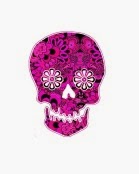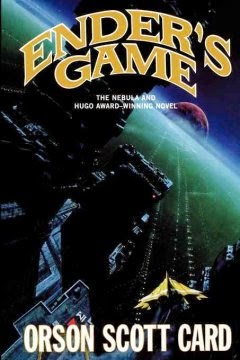

YA SKULL SESSION: EXPLORE AWARD-WINNING SCI-FI!
Science
fiction literature is a fantastic platform on which to explore points of view,
with its characteristic ability to explore themes ranging from morality of war,
genetic experimentation, dystopias, and countless other social issues. The genre has become increasingly popular in
Young Adult literature circles, most recently with the popularity of Suzanne
Collins’ The Hunger Games, James
Dashner’s The Maze Runner, and James
Patterson’s Maximum Ride, to name a
choice few. Character focus, as in The Hunger
Games, is often on children, but the age-range is endlessly explored and
applied. Here is magnetic appeal for
teens: characters of their age in fantastic situations that are often full of
drama but many times credible; with adult characters, teens have the advantage
of witnessing a possible adult self making life-changing decisions, at times
visceral and ruinous. Authors have long explored the morals of present-day
society, its governing bodies, choices of the past, social ecology, and
cultures. Here are three classic
examples, all of which won the Hugo Award for best Science Fiction Book of the
Year.
Let’s start with a familiar title of
late: Ender’s Game, by Orson Scott Card, brought to screen in 2013. Published in 1985, it’s the first in the
Ender Wiggin
Another
sci-fi classic brought to screen (numerous times) is
Robert A Heinlein’s Starship Troopers.
Also focused on waagainst
alien bugs, Heinlein writes as Johnny Rico, an older
teen who
enlisted as an interplanetary soldier.
The plot
recounts
Rico’s time as a mega-soldier (think Iron Man)
in this war
against the Bugs, relating his experiences on an
external and
internal levels. The story is not all action, inviting
a larger audience
and deep discussion. Heinlein is not
afraid to
use this
novel as a platform for strongly stating his opinions on
the morals
and philosophy of war, military order, capital
punishment,
and reigns of terror and force.
Lastly,
I will tell you about A Canticle for Leibowitz, by Walter M
Miller.
The oldest
of the three, published in 1959, the story is no less current.
 Earth has suffered
a nuclear holocaust and humanity is clinging to life in several disconnected
and often warring regions; the story is told in three successive spaces in
time meant to reflect actual times in history.
At the heart of the plot are the monks of
the Order of Saint Leibowitz, striving to preserve the remnants of civilization. They spend their days recording, sometimes
sharing, and protecting the history
of the human race. Like Ender’s Game and Starship Troopers,
Earth has suffered
a nuclear holocaust and humanity is clinging to life in several disconnected
and often warring regions; the story is told in three successive spaces in
time meant to reflect actual times in history.
At the heart of the plot are the monks of
the Order of Saint Leibowitz, striving to preserve the remnants of civilization. They spend their days recording, sometimes
sharing, and protecting the history
of the human race. Like Ender’s Game and Starship Troopers,
Leibowitz has an atmospheric and world-building
story line, but Miller deftly crafts his novel close to the dark inner-workings
of the human heart. The end times, he
suggests, are brought about the selfish, clutching, power-hungry actions of
humanity, and it is from this angle that he spins a bleak and chillingly
realistic tale of a ruined Earth. Teens
will remember this book as one of the most striking they’ve encountered.
All three of
these novels are bound to provoke lively discussion, if only in one’s mind, of
the morals of weapons and war, using war as a means of security, the effects of
war on the individual and populace, and causes of human suffering. Though science fiction is, in name, fiction,
the questions is raises and emotions it evokes are very much real.
More oldies
but goodies of the Sci-Fi lit world recommended for YA’s:
1984, by George Orwell (1949)
Brave New World, by Aldous Huxley (1932)
A Clockwork Orange, by Anthony Burgess
(1962)
Fahrenheit 451, by Ray Bradbury (1953)
Out of the Silent Planet, by C. S. Lewis
(Space Trilogy #1) (1938)
A Princess of Mars, by Edgar Rice
Burroughs (Barsoom series #1) (1917)
3.6.2015 E K Henry



No comments:
Post a Comment